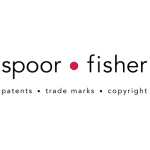The South African Supreme Court of Appeal (SCA) recently ruled in the trademark infringement case of iCollege (Pty) Ltd v Xpertease Skills Development and Mentoring CC and Another (Case No. 106/2022) [2023] ZASCA 70 (May 24 2023). The SCA overturned the decision of the Gauteng High Court, Pretoria, in favour of the appellant, iCollege.
A high court decision with flawed reasoning
A closer look at the high court's overturned decision reveals flaws in its reasoning. The court failed to consider the global appreciation of the likelihood of confusion and neglected to assess the marks as wholes. Instead, it focused solely on the pictorial elements, disregarding the overall impressions conveyed.
Trademark infringement cases require an assessment of visual, aural, and conceptual similarities between marks as a whole, considering their distinctive and dominant components. The high court's myopic analysis fell short of this standard.
The high court's failure to consider the marks holistically undermines the comprehensive assessment needed in trademark infringement cases. The dominant element of both marks, ‘iCollege’, bears substantial resemblance and creates a lasting impact on consumers' minds.
This oversight undermines the purpose of trademark protection, which aims to prevent confusion and deception. The high court downplayed the similarities by emphasising differences in logos, rather than assessing the overall impression conveyed by the marks as wholes.
The high court overlooked the principle that the greater the similarity between services, the lesser the degree of resemblance required to establish a likelihood of confusion. It disregarded the potential for deception or confusion due to the similarity in trade and the services provided. The court's analysis of the precise characteristics, scope, and teaching techniques of the services was irrelevant and failed to abide by the notional use test.
The high court also neglected the importance of phonetic resemblance in assessing trademark infringement, despite the trademarks in question being phonetically identical. This oversight raises concerns about the thoroughness of its analysis.
Lessons from the SCA’s ruling
The respondent argued that the appellant's disclaimed element, ‘College’, rendered the mark ineligible for protection. However, the SCA rejected this argument, stating that a trademark, considered as a whole, can still be protected even if a component is disclaimed. The court is entitled to consider the disclaimed feature when evaluating similarity and the likelihood of confusion or deception.
While the SCA overturned the high court's dismissal of the trademark infringement claim, certain aspects of the high court's decision require scrutiny. The failure to consider the marks holistically, downplay phonetic resemblance, and emphasise irrelevant distinctions between services raises concerns about the thoroughness of its analysis.
A comprehensive assessment of trademarks is crucial to protect consumers and uphold the integrity of intellectual property rights.
In summary, the SCA's ruling highlights the importance of a thorough and holistic assessment of trademarks in cases of infringement. By considering the overall impression, phonetic resemblance, and the potential for confusion among consumers, the court can effectively safeguard intellectual property rights and protect consumers from deception.












